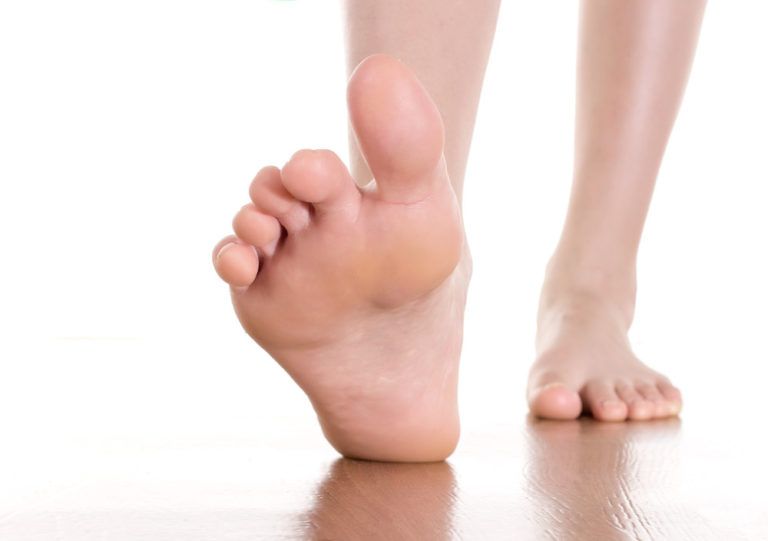Our team is trained and experienced in the treatment of pediatric foot and ankle conditions. We understand the physiology of each tiny bone, ligament, and muscle in a child’s growing foot and ankle. Our staff is experienced in specialty orthopedic treatment of children of all ages who are showing the signs of congenital or acquire foot health complications, such as toe-walking or abnormal gait.
Did you know…
that a child’s feet grow rapidly during the first year after birth? In fact, the foot is approximately half of its adult size by age one. While most children are born with ‘normal’ feet, a small percentage is born with congenital deformities that may or may not be immediately obvious in infancy. On the other hand, symptoms of a foot or ankle condition may not appear until adolescence in some children and teens.
Frequently Asked Questions
What types of pediatric foot and ankle conditions does your orthopedic surgery office treat?
We take great pride in providing our pediatric patients with comprehensive foot care. Some of the conditions we treat include:
- Pediatric Flatfoot – some children are born with congenital flatfoot, which may or may not require surgical correction.
- Tarsal Coalition – fusion of the tarsal bones can cause pain and foot stiffness in pediatric patients.
- Equinus – this condition causes limited ankle motion and poor flexibility, resulting in uneven foot pressure when walking.
- Cerebral Palsy – foot deformities are common in children with cerebral palsy, and may include club feet, bunion and other foot-related conditions.
What types of treatments are available for pediatric foot and ankle conditions?
Treatment for foot and ankle complications in children depends on the type of condition and its severity. We prefer to take the most conservative treatment possible before resorting to surgical interventions. Our non-surgical treatment options may include the use of foot orthotics, a brace, and even physical therapy. When these types of interventions are unsuccessful, we may recommend surgery to correct deformities that are causing or will cause pain and other complications in the future.
When should I bring my child to visit a orthopedic surgeon?
It may be time to bring your child to a orthopedic surgeon if you notice unusual changes in his or her walking posture or gait. Awkward walking, favoring a particular area of the foot and pain are all signs of a potential foot or ankle problem. Contact our office to schedule an appointment if you notice any of these symptoms in your child.



